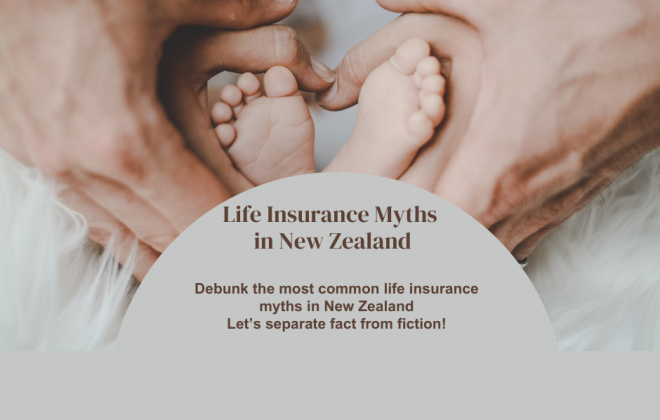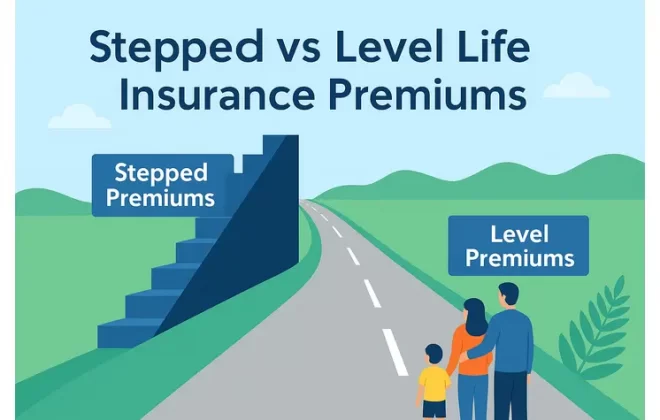Understanding Life Insurance Policies in New Zealand
Table of Contents
Life Insurance Policies are one of the most important financial decisions you’ll make. It’s about protecting your family if the unexpected happens. But with so many types of insurance in New Zealand, how do you choose the right one? 🤔
This guide breaks down everything you need to know about life insurance in New Zealand, from life cover policies to medical and mortgage insurance. Whether you are self-employed, a homeowner, or planning for your family’s future, you’ll find the best options here. You can also compare top policies here to find the best coverage.
What is Life Insurance?
Life insurance is a financial agreement between you and an insurer that guarantees your beneficiaries a lump sum payment upon death. The primary goal of life insurance is to protect those who depend on you financially, offering them a safety net during difficult times. The specifics of life insurance policies, such as coverage amount, premiums, exclusions, and additional benefits, vary widely between providers. Whether you’re looking for basic coverage or comprehensive protection, understanding the options available can ensure you choose the right policy.
This payout helps cover:
✅ Funeral costs
✅ Mortgage payments
✅ Outstanding debts
✅ Everyday living expenses
✅ Future financial security for your family
Life insurance isn’t just about death benefits—it’s about peace of mind. Choosing the right policy ensures your loved ones are protected.
Types of Life Insurance in NZ
There are several types of life insurance policies, each serving different needs. Let’s explore the most common types of life insurance available in New Zealand.
1️⃣ Life Cover Insurance – Simple & Affordable
Life Cover Insurance in New Zealand provides a lump-sum payment to your beneficiaries upon death or terminal illness diagnosis. This financial support can cover mortgage repayments, funeral costs, and daily living expenses, ensuring your loved ones are financially secure during challenging times.
Key Features:
✅Coverage Amounts: Coverage amounts typically go up to $1 million, but some providers offer higher limits depending on individual assessments and financial circumstances.
✅Premiums: Premiums are generally fixed and influenced by age, health, occupation, and lifestyle choices. Non-smokers and individuals in good health often benefit from lower premiums.
✅Early Payouts: Many policies provide an early payout option upon a terminal illness diagnosis, offering financial support when needed most.
✅Financial Security: Ensures your family can maintain their standard of living, covering essential expenses and debts.
✅Flexibility: The lump-sum payment can be used at the beneficiaries’ discretion, addressing various financial needs.
2️⃣ Income Protection Insurance – Keep Earning Even If You Can’t Work
Income protection insurance is designed to replace a portion of your income if you cannot work due to illness or injury. This policy is especially beneficial for self-employed individuals, contractors, and sole breadwinners who don’t have access to paid sick leave or employer-based insurance. Income protection insurance helps maintain financial stability while you recover and can cover a significant portion of your wages for a set period.
However, premiums may vary based on your occupation, health, and the waiting period chosen. If your job involves high-risk activities, premiums may increase due to the increased likelihood of injury.
Key Features:
✅ Pays up to 75% of your income if you’re unable to work due to illness or injury, subject to provider-specific maximum limits and conditions.
✅ Essential for self-employed Kiwis and sole breadwinners or those without sick leave.
✅ Premiums vary based on your occupation and health.
✅ Unlike ACC, which only covers income loss due to accidental injuries, income protection also covers illnesses that prevent you from working.
📌**Find the best providers with * Compare Income Protection to see which providers are best for you.
3️⃣ Trauma Insurance – One-Time Payout for Critical Illnesses
Trauma insurance, also known as critical illness insurance, provides a lump-sum payment if you are diagnosed with a severe illness such as cancer, stroke, or heart disease. This financial support can help cover medical expenses, lifestyle adjustments, and even lost income during recovery. However, it’s important to note that trauma insurance doesn’t cover all medical conditions—each policy has a defined list of covered illnesses.
This type of insurance is ideal for individuals with a family history of serious illnesses or those concerned about the financial impact of unexpected health challenges.
Key Features:
✅ Lump sum payment if diagnosed with a serious illness (e.g., cancer, stroke, heart attack).
✅ Helps with medical bills, mortgage payments, or lifestyle changes.
✅ Doesn’t cover all illnesses—read policy exclusions carefully.
📌 Check out Compare Trauma Insurance to see which providers offer the most flexibility!
4️⃣ Mortgage Insurance – Protect Your Home
Mortgage insurance is a type of financial protection that ensures your home loan is paid off if you pass away, become disabled, or cannot work due to serious illness or injury. This type of insurance prevents your family from facing financial hardship or losing their home due to unpaid mortgage repayments.
Key Features:
✅ Covers the remaining mortgage balance if the policyholder passes away or becomes disabled.
✅ Ensures your family can keep their home without financial strain.
✅ Some policies also offer coverage for job loss or serious illness.
📌 Best for: Homeowners who want to safeguard their family’s future and prevent their mortgage from becoming a financial burden.
📌 **Secure your home with ** Compare Mortgage Insurance
5️⃣ Medical Insurance – Faster Access to Private Healthcare
Medical insurance, also known as health insurance, provides financial coverage for private healthcare services, ensuring you receive prompt medical attention without relying on the public health system. It helps cover the costs of doctor visits, specialist care, surgeries, and hospital stays, reducing wait times for essential treatments.
Key Features:
✅ Covers private hospital treatments, surgeries, and specialist consultations.
✅ Faster access to medical care compared to public healthcare.
✅ Some policies include dental, vision, and prescription medication benefits.
✅ Options available for individuals, families, and businesses.
✅Provides additional security beyond ACC, which only covers injury-related treatments.
📌 Best for: Anyone looking to avoid long wait times in the public health system and gain priority access to medical care in New Zealand.
📌 Compare top providers at Compare Medical Insurance
Which Life Insurance is Right for You?
Choosing the right life insurance policy depends on your life stage, financial obligations, and long-term goals. There’s no one-size-fits-all solution, so let’s break it down into key factors to help you decide.
💡 1. Consider Your Financial Responsibilities
Before selecting a policy, assess your current and future financial needs. Ask yourself:
✔️ Do you have dependents? If you have a spouse, children, or other family members who rely on your income, life insurance is crucial to ensure their financial stability.
✔️ Do you have a mortgage or outstanding debts? If you pass away, your family could struggle to pay off home loans, credit card balances, or personal debts.
✔️ Are you self-employed? If you run a business, consider income protection or business overhead insurance to safeguard your income.
✔️ Do you have a long-term financial plan? Some policies offer investment benefits, such as whole life insurance, which builds cash value over time.
📝 2. Compare Life Insurance Options Based on Your Needs
Different life insurance policies serve different purposes. Here’s a deeper look into how they compare:
| Policy Type | Best For | Key Benefits | Potential Drawbacks |
| Life cover Insurance | Families & mortgage holders | ✅ Lower premiums
✅ Simple and flexible ✅ Ideal for young families & mortgage holders |
Premiums may increase with age |
| Income Protection Insurance | Self-employed professionals or anyone reliant on their income | ✅ Pays up to 75% of your income
✅ Covers illness & injury ✅ Essential for freelancers/business owners |
Can be costly, may have waiting periods |
| Trauma Insurance | Individuals at risk of critical illnesses | ✅ Lump sum payout for serious illnesses
✅ Covers medical costs & living expenses ✅ Helps reduce financial stress during treatment |
Doesn’t cover all conditions |
| Mortgage Insurance | Homeowners with large mortgage debts | ✅ Pays off a mortgage in case of death or disability
✅ Protects your family’s home ✅ Some policies include job loss coverage |
Tied to mortgage balance, can be expensive |
| Medical Insurance | Those wanting private healthcare access | ✅ Covers surgeries & specialist visits
✅ Faster access to private hospitals ✅ Reduces reliance on public healthcare |
Premiums increase with age |
📌 Need a personalised recommendation? Compare NZ’s top life insurance policies with Compare Life Cover.
📉 3. Budget Considerations – How Much Can You Afford?
Life insurance costs vary based on:
✔️ Your age – The younger you are, the cheaper your premiums.
✔️ Health & lifestyle – Smokers and individuals with pre-existing conditions often pay more.
✔️ Coverage amount – Higher coverage means higher premiums.
✔️ Policy type – Different policies have their own benefits, so premiums vary accordingly.
Life Cover Insurance Premium Comparison for a 35-Year-Old in New Zealand
| Provider | Monthly Premium | Coverage | Inclusions |
| Provider A | $32 | $500,000 | Basic life cover |
| Provider B | $38 | $500,000 | Life cover + Terminal illness benefit |
| Provider C | $40 | $500,000 | Life cover + critical illness cover |
📌 Pro Tip: Premiums vary significantly between providers, so always use a tool like Compare Life Cover to ensure you get the best deal.
🔍 4. Read the Fine Print – What’s Included & Excluded?
Before signing a policy, make sure you:
✔️ Check exclusions (e.g., pre-existing conditions, high-risk activities like skydiving).
✔️ Understand waiting periods (some policies won’t cover you for the first 12 months).
✔️ Ensure your premiums won’t skyrocket over time.
📌 Pro Tip: Always review your policy every 2-3 years to keep it updated with life changes like marriage, children, or a new mortgage.
Conclusion & Next Steps
Life insurance is not just about death benefits—it’s about protecting your financial future. Whether you need life cover, income protection or mortgage insurance, choosing the right policy ensures your loved ones are taken care of.
📌 Take Action Now: Compare NZ’s top life insurance providers with Compare Life Cover.
FAQs About Life Insurance in NZ
1. Do I need both income protection and life insurance?
📌 Answer: It depends on your financial situation. Life insurance provides a lump sum to your beneficiaries if you pass away, ensuring their financial stability. Income protection insurance, however, replaces a portion of your income if you become too ill or injured to work. Many Kiwis opt for both to cover long-term financial needs and short-term income loss.
2. Is medical insurance necessary if I already have life insurance?
📌 Answer: Yes! Life insurance covers your family financially if you pass away, while medical insurance helps you access private healthcare, specialists, and surgeries without long wait times. Having both ensures you and your family are protected in different situations.
3. How much life insurance do I need?
📌 Answer: A general rule is 10 times your annual income, but also consider your mortgage, debts, and future family needs.
4. Can I switch life insurance providers in New Zealand?
📌 Answer: Yes! You can switch providers if you find better coverage, lower premiums, or improved benefits elsewhere. However, before switching, ensure that your new policy is active before cancelling the old one. Also, check for waiting periods, exclusions, and premium differences when changing policies.
💡 Want to compare policies? Use Compare Life Cover to find the best life insurance options in NZ.
Latest Post
- Life Insurance for Senior Citizens in NZ: The 2025 Master Guide
- AIA’s Specialist and Testing Support – New Health Benefit Explained
- How Much Life Insurance in NZ Do Kiwis Need? 2025 Expert Guide
- Life Insurance vs Mortgage Protection in NZ: Key Differences
- Best Life Insurance Policies in NZ 2025: Expert Kiwi Guide




